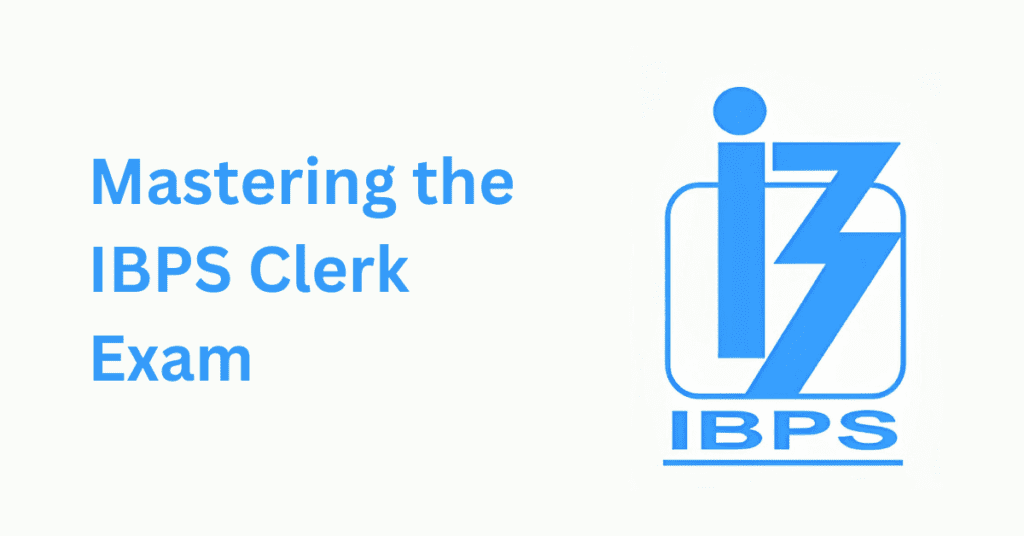The clerical examination conducted by the IBPS is known for its high competitiveness, requiring aspirants to exert significant effort to secure the job. It tests a candidate’s knowledge, reasoning abilities, and quantitative aptitude. One effective way to prepare for this exam is by studying the previous year’s papers, which offer valuable insights into the exam pattern, question types, and difficulty level.
This post will highlight five key elements that will help candidates in their preparation and go in-depth on the importance of mastering the ibps clerk previous year paper to clerk the exam.
Understanding the Exam Pattern
Mastering previous years’ papers is crucial as it helps candidates familiarise themselves with the exam pattern. By analyzing past question papers, candidates gain insights into the number of sections, the distribution of marks, and the time allocated to each section. This knowledge allows them to create a study plan and allocate sufficient time to each section accordingly. Awareness of the exam pattern also helps candidates manage their time effectively during the actual exam, improving their chances of scoring well.
Identifying Important Topics
When trying to find crucial subjects for the ibps clerk’s previous year’s paper, the prior year’s papers are a treasure mine of knowledge. By thoroughly analyzing these papers, candidates can identify recurring themes and topics that are frequently asked. This knowledge enables them to prioritize their preparation and allocate more time to topics that carry more weight. By focusing on these crucial areas, candidates can maximize their chances of scoring higher marks and success in the exam.
Practising Time Management
Effective time management is one of the main obstacles in every competitive exam. Mastering previous years’ papers allows candidates to practice time management skills effectively. By solving these papers within the stipulated time limit, candidates become more accustomed to the pace required during the exam.
This practice helps them develop strategies to allocate time wisely to different sections and question types, ensuring they complete the paper within the given timeframe. Regular time management practice through previous year’s papers enhances speed, accuracy, and overall performance in the IBPS Clerk Exam.
Assessing Difficulty Levels
Previous years’ papers provide valuable insights into the difficulty levels of various sections and question types. By solving these papers, candidates can gauge their strengths and weaknesses, understanding which areas require more attention. This self-assessment enables them to devise a targeted study plan, focusing on weaker areas and honing their strengths further. Furthermore, analyzing the difficulty levels of the previous year’s papers allows candidates to set realistic goals and adjust their preparation strategy accordingly, increasing their chances of success in the exam.
Enhancing Problem-Solving Skills
The IBPS Clerk Exam evaluates candidates’ problem-solving abilities across various subjects. Mastering previous years’ papers allows aspirants to sharpen their problem-solving skills by exposing them to various question formats.
By practicing these papers, candidates become familiar with strategies and techniques to solve complex problems efficiently. Regular practice enhances their analytical thinking, logical reasoning, and mathematical abilities, equipping them to tackle any challenging question that may arise in the exam.
You may also like to read
Conclusion
In order to excel in the IBPS Clerk Exam, candidates need to familiarise themselves with the IBPS Clerk Previous Year Paper. Through thoroughly analyzing these papers, candidates can understand the exam pattern, identify important topics, practice time management, assess difficulty levels, and enhance their problem-solving skills.
By incorporating these strategies into their preparation, candidates can boost their confidence, improve their performance, and increase their chances of success in the IBPS Clerk Exam. Remember, practice makes perfect, and by utilizing the resources available through previous year’s papers, aspiring candidates can navigate this competitive exam with proficiency and ease.
